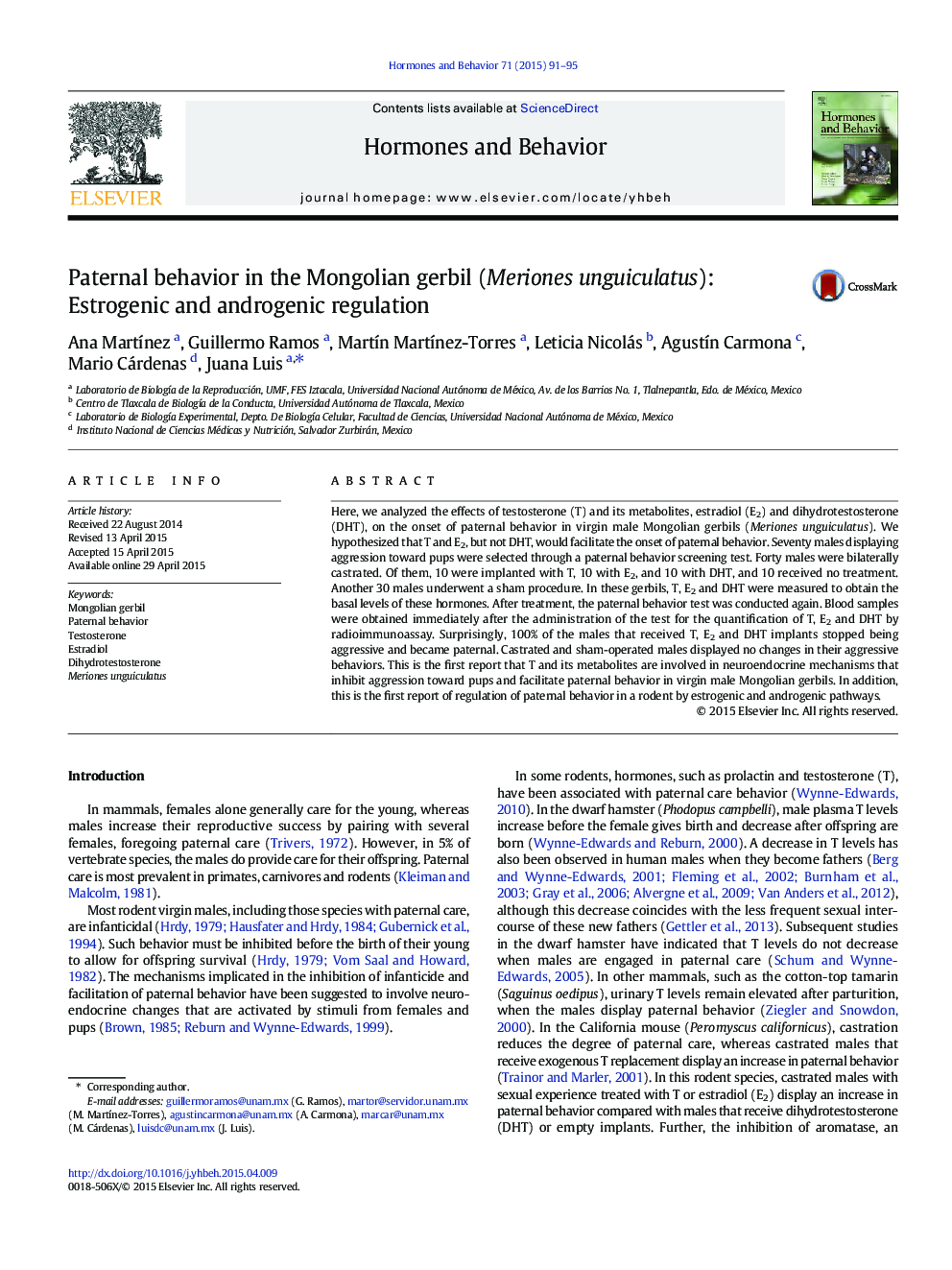| Article ID | Journal | Published Year | Pages | File Type |
|---|---|---|---|---|
| 6794967 | Hormones and Behavior | 2015 | 5 Pages |
Abstract
Here, we analyzed the effects of testosterone (T) and its metabolites, estradiol (E2) and dihydrotestosterone (DHT), on the onset of paternal behavior in virgin male Mongolian gerbils (Meriones unguiculatus). We hypothesized that T and E2, but not DHT, would facilitate the onset of paternal behavior. Seventy males displaying aggression toward pups were selected through a paternal behavior screening test. Forty males were bilaterally castrated. Of them, 10 were implanted with T, 10 with E2, and 10 with DHT, and 10 received no treatment. Another 30 males underwent a sham procedure. In these gerbils, T, E2 and DHT were measured to obtain the basal levels of these hormones. After treatment, the paternal behavior test was conducted again. Blood samples were obtained immediately after the administration of the test for the quantification of T, E2 and DHT by radioimmunoassay. Surprisingly, 100% of the males that received T, E2 and DHT implants stopped being aggressive and became paternal. Castrated and sham-operated males displayed no changes in their aggressive behaviors. This is the first report that T and its metabolites are involved in neuroendocrine mechanisms that inhibit aggression toward pups and facilitate paternal behavior in virgin male Mongolian gerbils. In addition, this is the first report of regulation of paternal behavior in a rodent by estrogenic and androgenic pathways.
Keywords
Related Topics
Life Sciences
Biochemistry, Genetics and Molecular Biology
Endocrinology
Authors
Ana MartÃnez, Guillermo Ramos, MartÃn MartÃnez-Torres, Leticia Nicolás, AgustÃn Carmona, Mario Cárdenas, Juana Luis,
